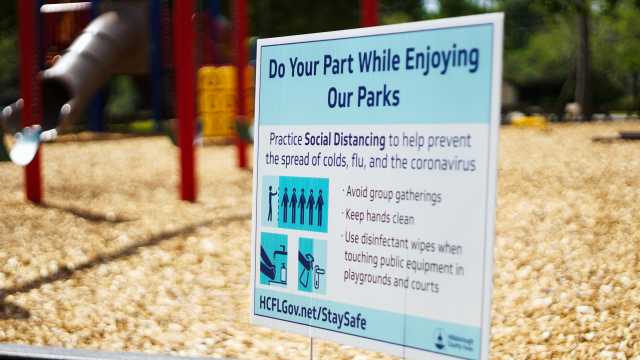Coronavirus
There’s a good chance you’ll benefit directly or indirectly from one or more of the 2020 incentives and bailouts provided by the U.S. government as a response to COVID-19.

Michael Schultheiss
•
Published April 15th, 2020
Table of Contents
Key Takeaways
The U.S. government has passed the CARES Act, providing numerous incentives and bailouts in response to the coronavirus.
You may be eligible for a direct stimulus payment if you are a taxpayer.
You or a loved one may be eligible for other benefits, including unemployment and paid sick leave and paid family leave.
The outbreak of the novel coronavirus that causes COVID-19 has changed all of our lives. Many people have questions not only about how to protect their health but also how to protect their retirement and their financial health. The U.S. government has responded to the coronavirus crisis with a series of incentives and bailouts starting in 2020.
There’s a good chance you’ll benefit directly or indirectly from one or more of the 2020 incentives and bailouts provided by the U.S. government as a response to COVID-19. In this article, we’ll go through what options are available as of April 2020.
Direct payments
If you are an American taxpayer with a work-eligible Social Security number, you may have a direct stimulus payment in your future. Under the CARES Act, the stimulus payment amounts have been set at $1,200 for individuals, $2,400 for married couples, and $500 per child under age 17.
These payments will be made available to individuals with incomes up to $75,000, heads of households with incomes up to $112,500, and married couples filing jointly with incomes up to $150,000.
After that, the benefits are reduced by $5.00 for every $100 of income. They are entirely phased out for people filing as individuals with adjusted gross incomes (AGIs) above $99,000, heads of household claiming one child and an AGI above $146,500, and joint married filers with AGI above $198,000.
The Treasury will use your most recently filed tax return, either 2019 or 2018, to calculate your payment. If you or a loved one are receiving a Social Security check and have income below the tax filing threshold, you’ll want to use the Social Security Benefit Form SSA-1099 to determine eligibility.
You can use this Stimulus Check Calculator to figure out what your stimulus check will likely be.
Unemployment insurance
In addition to concerns about the virus, one of the most difficult things many families are facing at this time is the loss of jobs and income. Another important aspect of the CARES Act is Unemployment Insurance.
Thanks to the Pandemic Unemployment Assistance provided by the CARES Act, more people are eligible for unemployment benefits. Employees, freelancers, gig economy workers, and self-employed are all eligible.
Benefits are also available for a longer period of time, 13 additional weeks beyond the number of weeks provided under each state’s rule. Additionally, for 4 months benefits are increased by an extra $600/week.
You can apply for unemployment benefits at the state level either in person, by phone, or online.
Paid sick leave
With the threat of the coronavirus to public health, another welcome incentive from the U.S. government is paid sick leave provided under the Families First Coronavirus Response Act (“Phase II”). However, as we will see, you do not have to contract COVID-19 to take advantage of paid sick leave.
This Act grants 80 hours of paid sick leave to full-time employees of businesses that have fewer than 500 employees. Employers with over 500 employees are exempt. There are also conditional exceptions for those that have fewer than 50 employees.
Part-time workers also receive some paid sick leave under this Act, an amount equal to the average number of hours they worked over a two week period.
You’re eligible if you’re a U.S. employee of a small or mid-sized firm who has worked for the company for at least a month and is now unable to work or telework because of COVID-19. Note that you do not have to become ill to take advantage of paid sick leave; the purpose of this paid sick leave is to compensate people who cannot work because they have to remain at home in order to comply with social distancing rules. That may mean that you were told by a health care provider to self-quarantine because you are exhibiting symptoms. It can also mean that you’re caring for another person who is subject to quarantine or isolation.
Reasons to take leave include being subject to federal, state, or local quarantine or isolation, or being told by a health care provider to self-quarantine. Having symptoms and seeking a medical diagnosis also qualifies. So does having to care for an individual who is subject to a federal, state, or local quarantine. Having to care for a child of any age because that child’s school or place of care has been shut down for public health emergency reasons also qualifies.
You can even use this paid sick leave in addition to paid family leave, discussed in more detail below. Additionally, if you are the parent of minor children and you cannot work or telework because of child care duties caused by school closures, you may qualify for paid sick leave in addition to paid family leave.
All payments are equal to 100% of normal compensation, up to a maximum of $511 a day.
Paid family leave
Many people have had to spend more time at home with their families because of COVID-19. While more family time may be welcome, going without income is a problem for many families, and the CARES Act is addressing it through paid family leave.
The paid family leave program provides up to 12 weeks of leave at two thirds of the usual rate of pay, up to $200/day maximum. You are eligible if you are a U.S. employee of a small or mid-sized firm, and you have worked for the company for at least a month and are now unable to work or telework thanks to a qualifying need related to a public health emergency.
In other words, if your child’s school, place of care, or child care provider is closed because of a public health emergency such as COVID-19, you may be eligible for paid family leave.
Student Loans
There’s some good news for college graduates in the CARES Act as well: from March 13 to September 30, all payments for government-issued student loans will stop, and there will be no interest charged to your loans. Any auto-payments should be automatically stopped by your loan provider.
The specific types of loans affected are Direct Loans, FFEL Program Loans, and Federal Perkins Loans owned by the Department of Education. Some FFEL Program Loans and Federal Perkins Loans are owned by private institutions – these loans are unaffected by the CARES Act.
The federal government has stopped requesting garnishments from paychecks, federal income tax returns, and social security payments for borrowers who have defaulted. All garnishments withheld from March 13, 2020 will be refunded. Even private collection efforts have been stopped for government-issued loans.
If you have employer-paid student loan payments up to $5,250, know that these are temporarily excluded from income tax reporting.
Medicare/Medicaid
If you need to get a COVID-19 lab test, you can get one with no out-of-pocket costs thanks to Medicare or Medicaid. Also, medically necessary hospitalizations, including quarantine, are covered. And if the government is able to approve a vaccine for the coronavirus, you’ll be covered for that, too.
Qualified Retirement Plan Withdrawals
Withdrawing money from your retirement is usually a step to be avoided if at all possible, and with the COVID-19 pandemic it’s a good idea to talk to a Certified Financial Planner® to see if there’s another alternative.
That said, the government has relaxed rules for retirement plan withdrawals. You may withdraw up to $100,000 penalty-free from your IRA or employer-sponsored retirement plan. The income tax on the distribution will be split evenly across the 2020, 2021, and 2022 tax years by default. However, you still have the option of including all of it in your 2020 income when you file taxes.
You’ll need to repay any funds you withdraw over a three-year period, and the money will need to go back into a retirement account. At that point, you can file an amended tax return, and any taxes withheld on the distribution may be reclaimed as a refund.
There’s another important rule the government has relaxed regarding retirement plans, and that has to do with required minimum distributions (RMDs). Under the new rule, you can skip the RMD for your IRA or 401(k). You can even skip the RMD for 2019 if it was delayed to April 1, 2020.
Bottom line
The novel coronavirus that causes COVID-19 has upended all of our lives. If you’re having to rethink your financial future, you’re hardly alone.
The government has passed a series of helpful programs, both incentives and bailouts, to help individuals under the CARES Act. There are also other bailouts and helpful programs for small businesses affected by the disruption.
There’s a good chance you and your loved ones will be eligible for one or more of these programs. As you re-examine your retirement plans, it’s a good idea to talk to a Certified Financial Planner® in order to see what your options are and find the best solutions in these challenging times.
Share this advice

Michael Schultheiss is a freelance copywriter of long-form content and other marketing communications (B2B and B2C) in the financial services and FinTech niches. In copywriting, he looks for hungry crowds. Other interests include health, fitness, and reading and writing fiction.
Share this advice

Michael Schultheiss is a freelance copywriter of long-form content and other marketing communications (B2B and B2C) in the financial services and FinTech niches. In copywriting, he looks for hungry crowds. Other interests include health, fitness, and reading and writing fiction.


